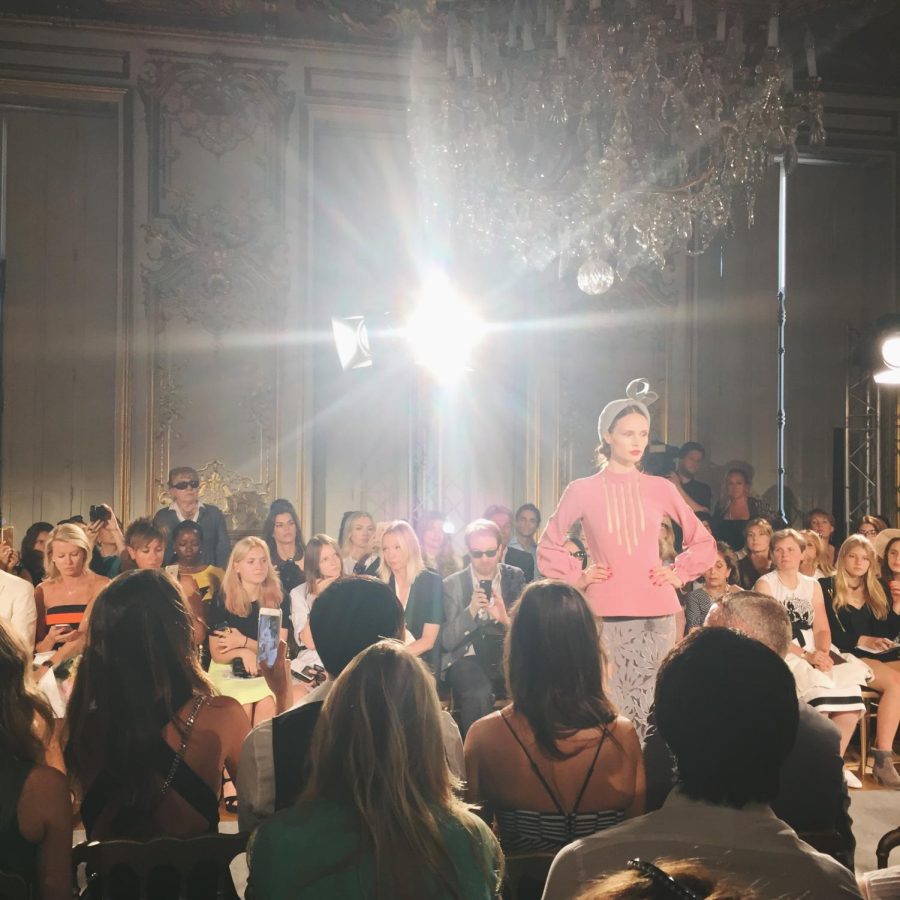Fashion student takes new approach on “sexy” fashion
In 2010, the U.S. Bureau of Labor Statistics reported that American households spent an average of $1,700 a year on apparel, footwear, and related products and services.
Statistics like these are why Kelly Cunningham, a freshman fashion merchandising major, decided to make a change. The effects of fashion on the environment and economy inspired her to create the organization Global Fashion Citizens (GFC).
She describes the current state of the fashion industry as the equivalent to the consumption of fast food.
“It’s like fast food: Forever 21 and H&M are fast fashion. We are constantly just eating and eating and it costs pennies to make. It’s not good for the economy; it’s not good for the environment,” Cunningham said. “Sustainability is really important because we are taking in all this clothing and then people end up throwing it in the garbage can a month later when it gets a hole in it.”
Cunningham added that these practices are taking a toll on the environment.
Cunningham’s passion for sustainability in the fashion world began after she befriended a first generation Bangladeshi-American and learned of the darker side of fashion and manufacturing. From there, she watched the documentary “The True Cost,” on Netflix and stopped purchasing new clothing all together.
“I immediately stopped buying clothing. I just thrifted and borrowed clothes from my big sister,” Cunningham said. “I’ve been terrified to buy new clothing, so the whole point of GFC is to reduce your waste and to stop buying things. I thought it was going to be really prevalent because in the fashion industry, our whole thing is capitalism and materialism.”
With the support of her Chi Omega sister and close friend, freshman fashion merchandising major Gilly Temple, Cunningham began GFC as a way for the university’s fashion students to show that “sustainability is sexy.”
“We live in a time where fashion is evolving quicker than ever, and naturally, the more clothing we produce, the more waste is created,” Temple said. “We hardly think about what purchasing a basic T-shirt at a fast fashion store means to the economy and environment.”
Temple says that students have been receptive to this idea.
“We have a great group of students in GFC who are incredibly passionate in slowing down the negative impact of fashion production,” she said.
For the first time, GFC will hold an official fashion show on April 21 in the Student Center.
Cunningham described the event as a way “to show people that sustainability is sexy and that you can be cool and also thrifty.”
The show, which was inspired by Karl Lagerfeld’s Chanel “catwalk protest,” will feature styled looks that have been either thrifted or up-cycled. No new clothing will be purchased for the event.
“I really want this club to be a really expressive, creative outlet for people. We can also do it responsibly,” Cunningham said. “I want to show people that you can be creative and also environmentally friendly.”
Margarita Benitez, an assistant professor in the Fashion Design and Merchandising department, serves as the advisor for GFC. She expressed the importance of sustainability in the fashion industry.
“(It is) an unrealistic expectation for our clothes to be cheap … when it is cheap the tradeoff is usually at the exploitation of resources – human and environmental,” Benitez said.
Benitez wants to see this generation of students make a change.
“I would like students to become the change we need as a culture,” Benitez said. “They can not only make changes in their own consumption and design strategies, but can also become ambassadors of sustainability and help educate others on sustainability and the true cost of consuming fast fashion.”
Cunningham currently serves as president of GFC and hopes to travel abroad after graduation. She wants to go into underdeveloped countries and teach women how to be financially independent through producing handmade and sustainable items including jewelry, fabrics and garments.
Ile-Ife Okantah is a fashion reporter for The Kent Stater, contact her at [email protected].



